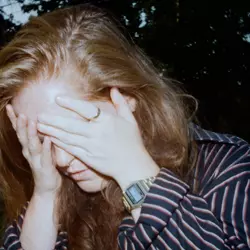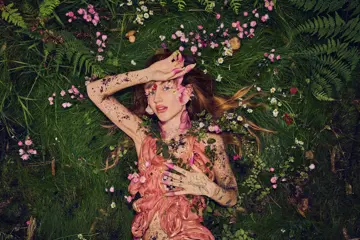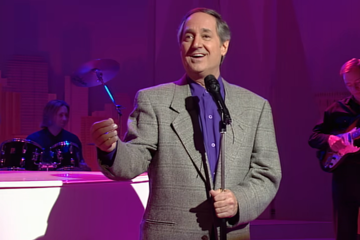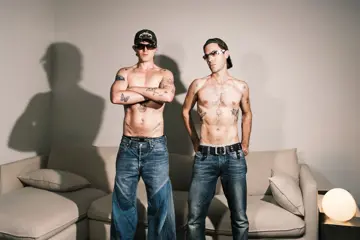 Jax Anderson
Jax AndersonIn the modern world, an undercurrent of angst that has been bubbling beneath the surface feels like it might just punch its way through at any moment. It feels tangible – whether it’s scientists shaking their heads in disbelief at the incessant head-in-the-sand bureaucracy that limits action on impending environmental catastrophes, or the growing disparity between the rich and the poor, the privileged and not so.
In the US, in particular, there's the government shutdown, mounting support for Trump’s ‘wall’, and even the bizarre ‘not all men’ fallout from what should have been a rousing ad from shaving company Gillette.
Thank goodness for the all-embracing warmth of Detroit's Jax Anderson aka Flint Eastwood and her rousing anthem Real Love, adopted for obvious reasons by the LGBTQI community upon its release last year. On the back of other songs like Queen and Chapter 4 Sober, Anderson is feeling the love from all corners of the globe for her vibrant indie-pop. And it’s a good thing, too, given the current state of affairs coupled with the fact that she’s in her studio and “it’s one degree outside – if you hear clanging noises it’s because the pipes are frozen”.
"...When I was younger there was barely any LGBT representation, let alone acceptance."
“It's a really crazy experience knowing that my community has embraced this song, because when I was younger there was barely any LGBT representation, let alone acceptance, so to be able to see a world where that's more widely accepted is great,” she says. “Granted, we have a long way to go specifically with trans rights and different sex rights, but I think it's a beautiful thing that it’s progressing.
Don't miss a beat with our FREE daily newsletter
“I think the overall feeling is that it's the same feeling anywhere: everyone has angst and everyone wants to see change, and quickly, and it should be happening faster than what it is.
“I think the next couple of years and even the next decade, we're going to see a lot of shift in people's perspectives. I think it's really beautiful to see. But yeah, it's crazy as a musician to travel around and see what it's like elsewhere in the world, and then you come back home and see how far we have to go.”
If there is an upside to living in unstable times, it’s the near-constant source of creative stimuli for artists like Anderson. Currently working on her first long-player alongside her brother Seth, also known as Syblyng, she says having “something on your soul that you just need to talk about” inspires her songwriting.
“Some of my songs that I love the most have come from a place of frustration and angst,” she explains. “Real Love, for example, came from my own experience. I grew up in a very Christian home and the church I grew up with that I eventually worked for after school hosted a gay conversion therapy workshop for girls aged 11 to 13 who were questioning their sexual orientation and their gender identity.
“My whole life I was taught that if you follow Christianity you produce these things called the fruits of the spirit, which is love, joy, peace, patience, etc. You can have all these things – but not if you're gay.
“But I found all these things they said I couldn't find – I found them by being true to myself when I came out to everyone around me and told them, 'Yo, I'm extremely queer.' I found a lot of happiness in it, and I felt a lot of love and joy and acceptance and peace, just by being myself. Sometimes that's a really hard thing to do. So for me personally some of my best art comes from angst.”
Starting out in the Detroit music scene nearly a decade ago has seen Anderson change and adapt in name, style and sound as she's “typically being the type of artist that avoids going, 'This song's been real successful for my band so I need to make more of this.’” Attracting collaborators is a regular thing, including an upcoming stint alongside Alice Ivy, which Anderson credits with helping keep things fresh.
“I kind of go in with the mindset of, 'This is what I like at the moment, this is how I want to speak, this is how I want to portray the idea I have,' and I hope other people like it,” she argues. “I think that's where the most authentic art comes from, when the artist themselves are creating something that they genuinely like. So I don't release something unless I'm really obsessed with or really enjoy or believe in.
“Whatever is best for the song and what is most authentic needs to win over how I feel about it.”















